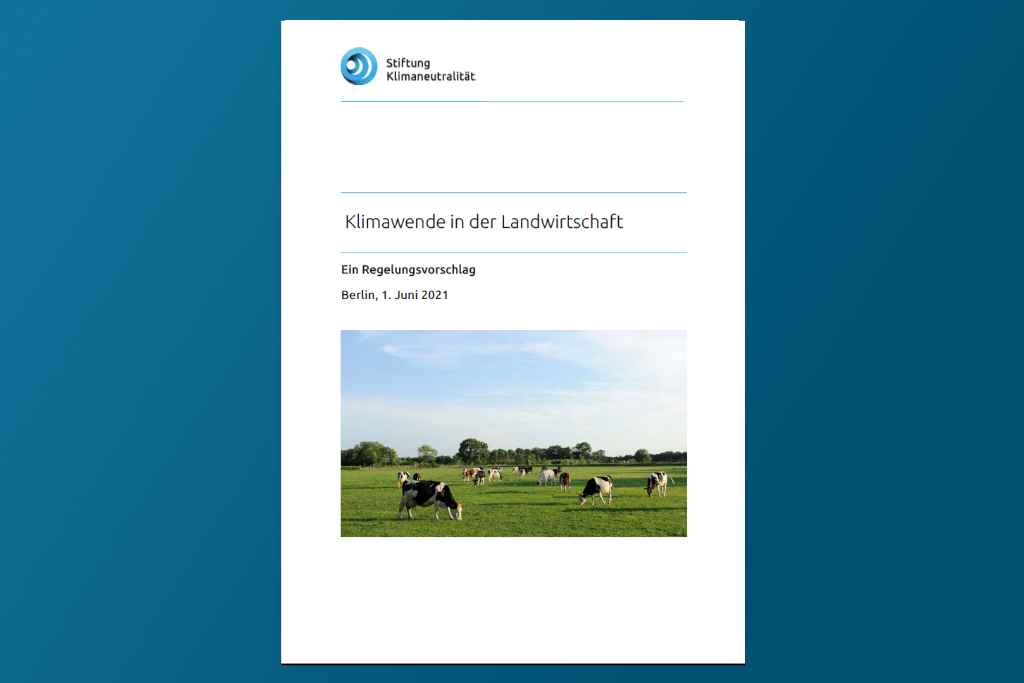Even if large shares of greenhouse gas emissions in agriculture are biological and cannot be completely avoided, there remains a considerable reduction potential that agriculture can and should contribute to climate neutrality. This primarily involves avoiding nitrogen surpluses in fertilization and reducing methane emissions from animal husbandry.
Based on a study by a consortium led by scientists from Berlin’s Humboldt University, the Climate Neutrality Foundation has developed corresponding policy recommendations (in German only).
The Climate Neutrality Foundation proposes, first, the dismantling of tax privileges for animal products: In the future, the full 19% sales tax should apply. In addition, a nitrogen tax shall help to reduce the still high nitrogen surpluses. The new nitrogen tax is to be levied on retailers as a volume-based excise duty on the nitrogen content of mineral fertilizers and initially amount to EUR 0.50 per kilo of nitrogen. The proceeds of both measures should be returned to agriculture to support a climate-friendly transformation.
In addition, the Climate Neutrality Foundation considers a nutrient balance per individual farm (“farm gate balance”) as necessary in order to limit balance surpluses. Nitrogen balances should be defined and data access by agricultural offices to the relevant material flows should be guaranteed.
The Climate Neutrality Foundation further urges the development of a peatland protection strategy with the goal of extensive rewetting by 2045 and climate-friendly economic use of the rewetted areas. In the beginning, the Climate Neutrality Foundation relies on positive incentives and voluntariness, but in the medium and long term, it considers a higher commitment to peatland protection necessary, for example through emissions pricing.
